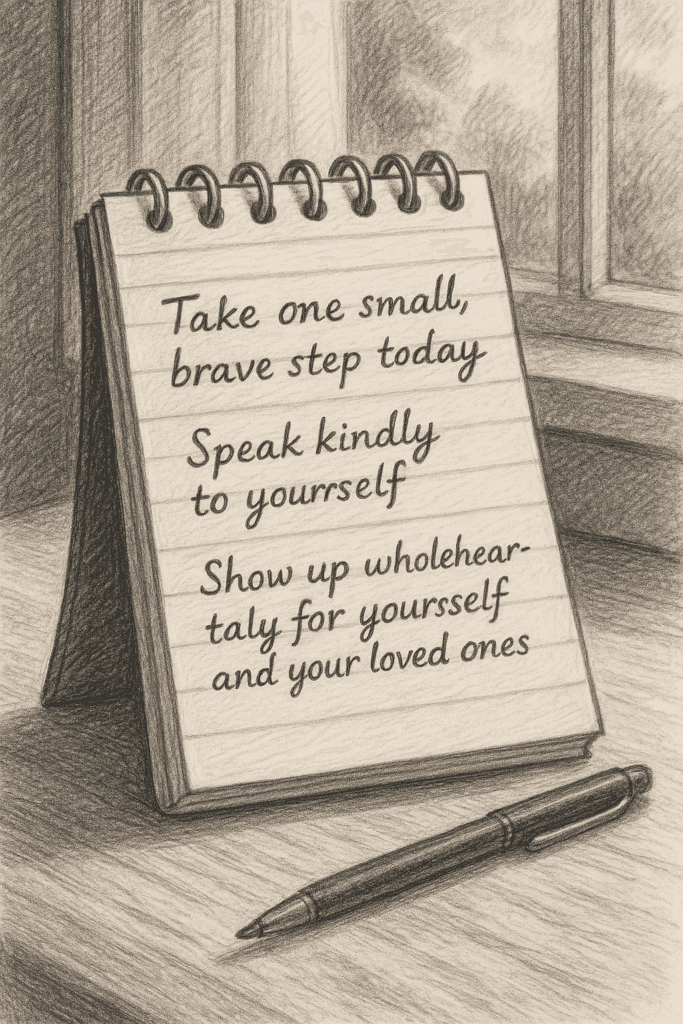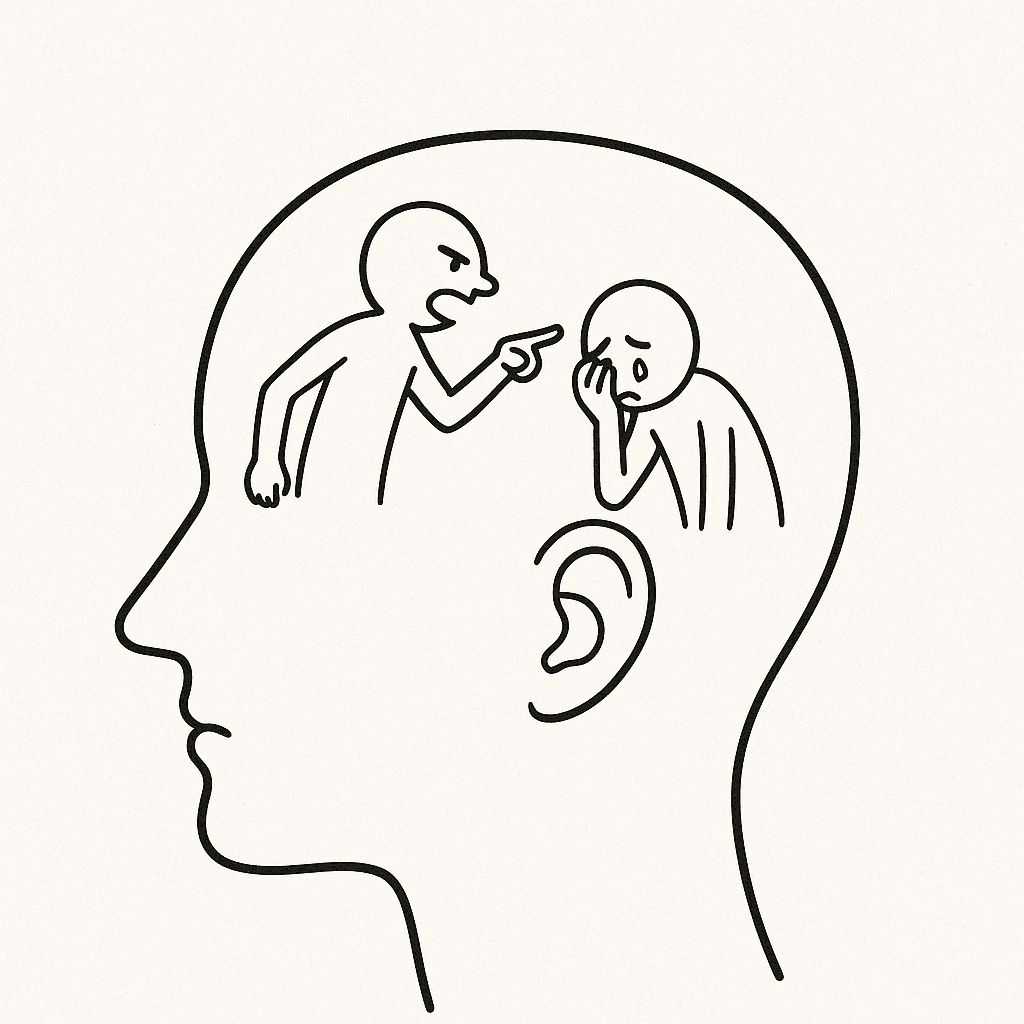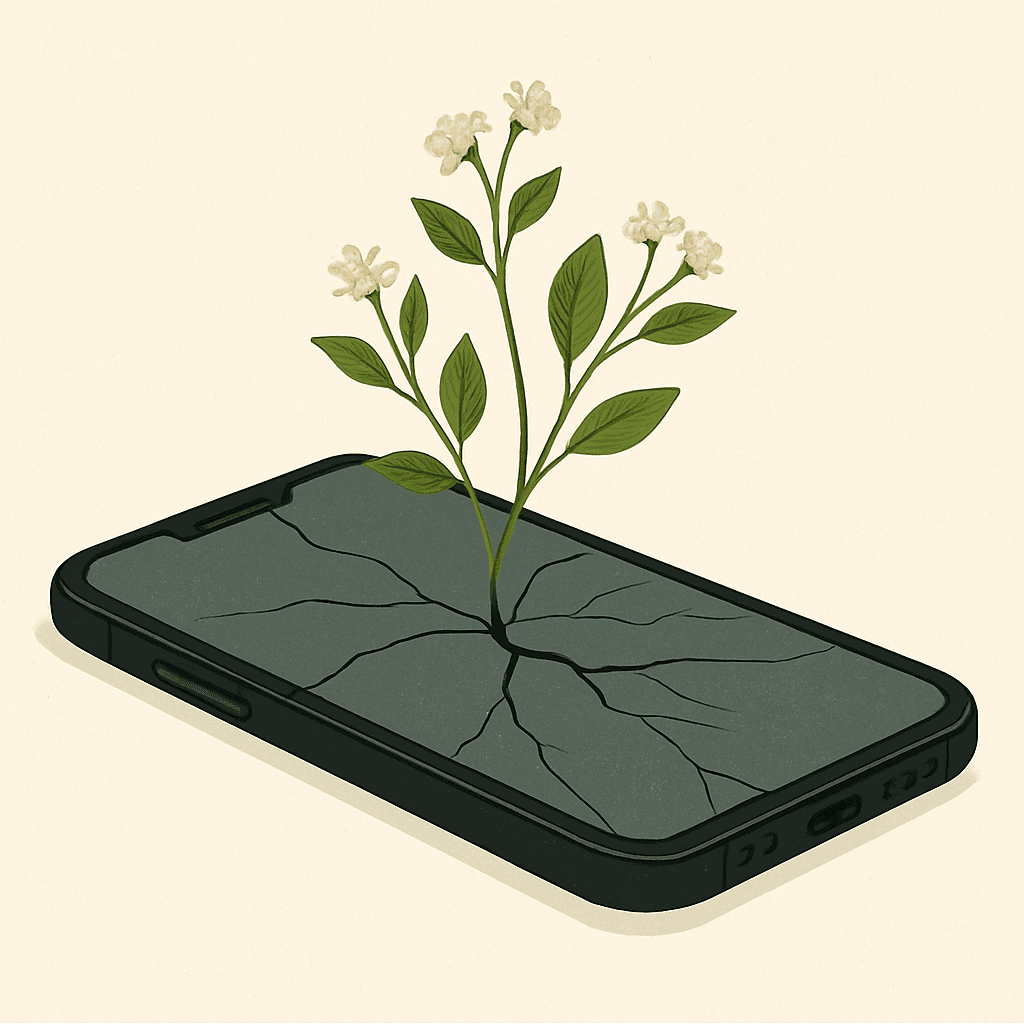There is a quiet suffering embedded in procrastination—one we often overlook or dismiss as laziness, poor time management, or lack of motivation. But beneath this behavior lies a deeper psychological wound: a rupture in the relationship with the self.
Procrastination is not a failure of discipline, but a failure of inner kindness. It is the ultimate form of self-criticism, manifesting not in harsh words, but in the quiet betrayal of our future self.
To understand this more fully, it helps to recognize a central truth in human experience: we are not fixed entities but processes. Our “self” unfolds across time. The person we are today is intimately connected to the person we hope to become tomorrow. Yet when we procrastinate, we behave as if that future self is not worthy of our present effort. In doing so, we fracture a fundamental connection—the one between who we are now and who we wish to be.
The Inner Landscape of Procrastination: A Subtle Form of Self-Harm
When someone delays a meaningful task—whether writing, healing, creating, or committing—it’s rarely due to indifference. More often, procrastination is a protective strategy against pain. The pain of not doing something well enough. The fear of being judged. The terror of discovering that we are not as competent, talented, or capable as we wish to be.
So, we delay. Not because we don’t care, but because we care too much and lack the tools to hold that caring with gentleness.
In this way, procrastination becomes an act of subtle self-harm. It’s not an intentional sabotage, but an unconscious punishment for not already being who we think we should be. The inner voice behind procrastination whispers: “If I can’t do it perfectly, why bother?” or “If I try and fail, it will prove I’m inadequate.” This is the voice of the inner critic, dressed in passivity.
Psychologist Carl Rogers once said, “The curious paradox is that when I accept myself just as I am, then I can change.” Likewise, Dr. Kristin Neff’s research on self-compassion shows that transformation arises not from harshness, but from kindness. If we want to begin to move through procrastination, we must first see it for what it is: not laziness, but fear. Not indifference, but shame. Not defiance, but protection.
Procrastination and the Future Self: A Fractured Alliance
There is an intrinsic cruelty in how we treat our future selves. We load them with expectations we refuse to meet today. We give them our burdens and none of our kindness. In psychological terms, procrastination reflects temporal disintegration: a failure to relate to our future selves as real, valuable, and deserving of present care.
When we procrastinate, we discount the future in favor of short-term relief. We give our present self a break, but at the expense of our future self’s suffering. And here’s the tragic irony: when that future self inevitably becomes the present self, we judge them mercilessly for the choices we ourselves deferred. We become both the one who wounds and the one who bears the wound.
But this cycle can be broken. When we cultivate an attitude of self-compassion—when we begin to view our future self not as a stranger, but as a continuation of who we are—we naturally begin to take actions that align with long-term values rather than short-term comforts.
The Self-Compassionate Path Through Procrastination
If the goal is to move beyond procrastination, the first step is to meet ourselves with tenderness. When avoidance, delay, or distraction arises, we can respond not with shame, but with curiosity:
-
“What pain am I trying to avoid?”
-
“What do I fear this task will reveal about me?”
This gentle inquiry creates space. Space to remember that we are not machines, but humans with vulnerabilities. Space to reconnect with the values that make the task meaningful in the first place. Space to see the task not as a threat to our worthiness, but as an opportunity to honor our inner truth.
Self-compassion allows us to tolerate imperfection. It gives us the courage to try, fail, and try again. When we embrace our experience with gentle acceptance, we stop needing to avoid it. In this way, self-compassion becomes the antidote to procrastination—not through pressure, but through presence.
Bridging the Gap with Habits: Wisdom from Atomic Habits
James Clear, in his bestselling book Atomic Habits, offers a framework that aligns beautifully with the self-compassionate approach. He reminds us that we do not rise to the level of our goals; we fall to the level of our systems.
To reduce procrastination, we must move away from perfectionistic expectations and toward systems that respect our humanity.
Here are a few habit-based interventions, filtered through the lens of self-compassion and the future self:
1. Make the Identity Shift First
Clear emphasizes: “Every action you take is a vote for the type of person you want to become.” Rather than trying to brute-force a task out of guilt, begin with identity: “I am someone who cares for my future self.” Let this become a quiet internal mantra. Procrastination becomes less tempting when the action aligns with who we believe ourselves to be.
Reframe: “Even small steps today honor my future self’s peace.”
2. The Two-Minute Rule
One of Clear’s most accessible tools is the two-minute rule: scale your habit down to a version that takes two minutes or less.
If you’re procrastinating on writing, don’t set a goal of 1,000 words. Set a goal to open the document. Then write one sentence. That single sentence is enough to vote for your identity as a writer, creator, or someone who shows up.
Reframe: “I don’t need to do everything now. I just need to begin.”
3. Design Your Environment for Success
Environment is the invisible hand that shapes behavior. Create a space that reduces friction between you and the task. Put your journal by your bed. Keep project materials visible and ready. Log out of distractions.
Reframe: “I deserve an environment that makes showing up easy, not punishing.”
4. Habit Stacking
Link a new habit to an existing one. For example, after making morning coffee, sit down to review your task list. This creates momentum through consistency and comfort.
Reframe: “My routines can nurture me and move me forward.”
5. Track Progress with Kindness
Instead of focusing only on outcomes, celebrate consistency. A calendar streak of days you took action—no matter how small—can serve as both a motivator and a kindness ritual.
But don’t let a missed day become fuel for shame. Progress is not linear. Every return is a triumph.
Reframe: “Missing one day does not erase who I am becoming.”
Returning to Wholeness: Reuniting With the Future Self
Procrastination won’t be undone by willpower alone. It is softened by compassion, reshaped by systems, and healed through reconnection with the future self. When we begin to see that the person we are becoming is as real and worthy of care as the person we are now, we begin to live in alignment.
Carl Rogers believed that every person has an actualizing tendency—a natural movement toward growth, authenticity, and wholeness. But this growth is stifled when we live under conditions of worth: “I’m only good if I’m productive” or “I only matter if I’m perfect.”
Self-compassion challenges those conditions. It says: “I am worthy now, as I am, and I also wish to grow.”
This is the paradox that liberates us: we can hold both acceptance and aspiration. We can care for ourselves in the moment and still move with intention toward who we want to become.
A Closing Invitation: Live as If You Matter
What would it look like to care for yourself in this moment, knowing your future self is quietly hoping you will?
Would you wait for the perfect time—or take one small, brave step today?
Would you scold yourself for delaying—or speak with the same tenderness you’d offer a dear friend?
Would you continue to abandon your future self—or begin to show up, not perfectly, but wholeheartedly?
Procrastination is not a flaw in your character. It is a message. A request. A gentle plea from within to reconnect with yourself in the present and remember: your future is not a distant stranger—it is you.
And you are worthy of being met with love, here and now.
Like our articles? You should meet our therapists! Reach out today for a free 15-minute phone consultation.







